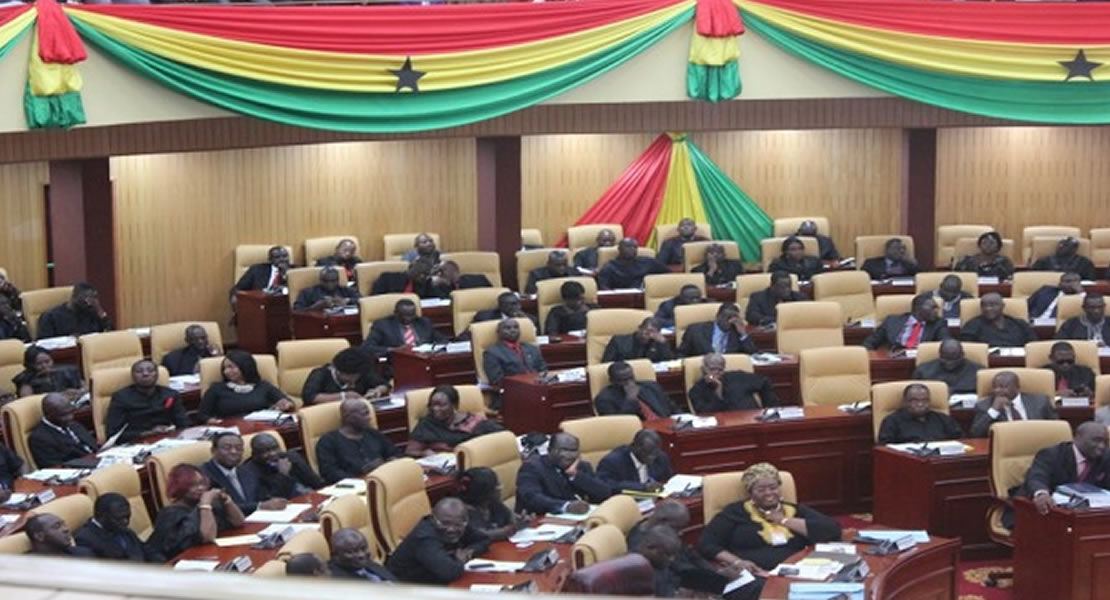
Parliament on Friday performed the second reading ritual of the Transition Bill.
The bill seeks to design formulae for political transfer from one government to another in Ghana.
The 14-clause bill is a novelty in the history of the country as far as formal political arrangements for transfer of the reign of government is concerned.
It provides an institutional framework for solving transitional disagreements, promotion of transparency and accountability in the management of state assets, resolution of grey issues which often occasion dilemmas during transitions.
The Bill will also establish formalized arrangements for handing over notes as well as improved arrangements for vacation of office and official residence by state functionaries.
Mr Ebo Barton Oduro, NDC Member for Cape Coast and the Deputy Attorney-General and Minister of Justice, said the bill provided an inbuilt mechanism designed to promote, uphold, strengthen and ensure
transparency and accountability in the management of state assets.
He said the bill provided for periodic stocktaking and detailed inventory of executive assets thereby limiting expropriation of the assets which allegedly occur during transitions.
He made reference to Clause 9 of the bill, for example which enjoined the creation of a national register to cover lands vested in the president as well as other official assets both in the official
and private residences of key state functionaries, including ministers of state.
Mr Emmanuel Kwasi Bandua, Chairman, Committee on Constitutional Legal and Parliamentary Affairs, said the initiation of the bill was a further step to establish proper guidelines to govern transition in
government.
He said the proposals made in the bill were critical components of good governance.
Supporting the motion, Mr Isaac Asiamah, NPP member for Atwima Mponua, said there must be decency during transitions in the country whereby out-going government officials are treated with decorum.
He said past government officials who faithfully served the nation, were rather labelled devils contributing nothing to the development of the country.
He expressed the hope that this attitude would come to a halt with the initiation of this bill.
“We must stop this attitude and give respect to each other,” he said adding, exiting government officials who were to vacate government apartments must be given ample time to quit.
Mr Fritz Baffour, NDC member for Ablekuma South, said the passing of the Transition bill was overdue as it would have helped reduce the insults that politicians hail on each other during transition periods.
Mr Haruna Iddrisu, Minister for Communication, said during transitions, the vacuum created must be managed in a way that parties involved must co-operate with each other.
He expressed disappointment that officials trained with state resources were only thrown off during transitions for being unsuitable.
He said most of these problems arose because of excessive partisan loyalty as against loyalty to the state.
He stated that politicians must face the reality that they cannot rule forever as some made Ghanaians to believe.
“Uphold the dignity of people who serve, and say thank you, ” he said, and called on exiting ministers to learn to prepare their handing over notes early.
Mr Hackman Owusu-Agyemang, NPP member for New Juabeng North, said the introduction of the Transition Bill was leading Ghana to a more civilized way of governance, and thanked the Institute of Economic Affairs for initiating the bill.
Dr Yakubu Alhassan, NDC member for Mion, said parties in transition must face all issues with objectivity, while Mr Joseph Osei Owusu, NPP member for Bekwai, said the dissatisfaction created by the
way the two parties treated each other during transitions, necessitated the new culture of establishing a legal framework to regulate transitions in Ghana.
Mr Osei Kyei-Mensah-Bonsu, Minority Leader, said the title of the bill should be altered from Presidential or Transition Bill to Governance Succession Bill.
GNA